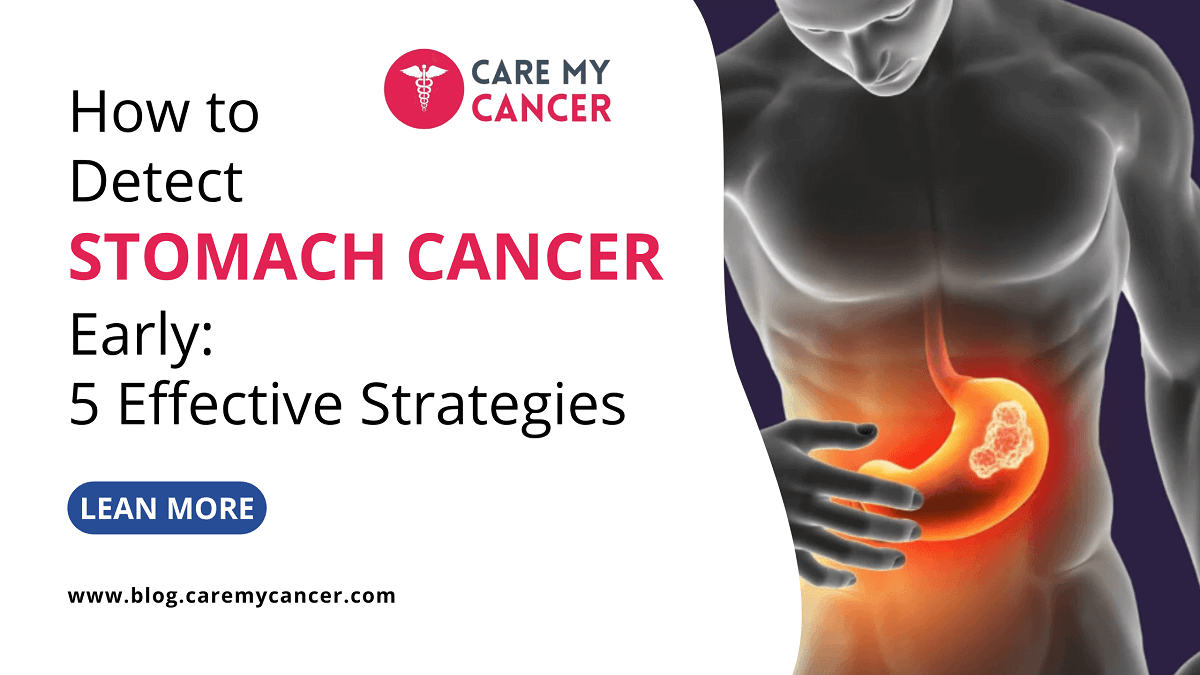Detecting stomach cancer early can be a lifesaver. With early detection, treatment options are more effective, and survival rates significantly improve. But how do you catch this stealthy disease before it advances? Let’s dive into five effective strategies to detect stomach cancer early.
Understanding Stomach Cancer
What is Stomach Cancer?
Stomach cancer, also known as gastric cancer, originates in the stomach’s lining. It’s a sneaky adversary, often growing slowly over many years before symptoms become noticeable.
Common Causes and Risk Factors
Several factors can increase your risk of developing stomach cancer. These include a diet high in salty and smoked foods, smoking, a family history of the disease, and infections like Helicobacter pylori (H. pylori).
Signs and Symptoms of Stomach Cancer
Early Signs to Watch For
Early-stage stomach cancer might not cause symptoms or may only produce vague signs like indigestion, mild nausea, or a feeling of fullness after eating small amounts.
Advanced Symptoms
As the cancer progresses, symptoms can include unexplained weight loss, stomach pain, vomiting, difficulty swallowing, and noticeable swelling or fluid build-up in the abdomen.
Importance of Regular Medical Check-ups
Role of Routine Screenings
Routine medical check-ups are your first line of defense. Screenings can detect stomach cancer at an early stage, even before symptoms appear.
Types of Screenings Available
Several screening methods exist, including endoscopy, where a thin tube with a camera is inserted into the stomach, and imaging tests like CT scans.
Strategy 1: Know Your Family History
Genetic Predispositions
If stomach cancer runs in your family, your risk may be higher. Genetic mutations can be inherited, making it crucial to understand your family medical history.
Discussing Family History with Your Doctor
Share your family history with your doctor. They can recommend genetic counseling and regular screenings tailored to your risk level.
Strategy 2: Pay Attention to Symptoms
Common Symptoms
Keep an eye on symptoms like persistent stomach discomfort, bloating after meals, loss of appetite, and heartburn. These might seem minor but could indicate early stages of cancer.
When to Seek Medical Advice
If symptoms persist for more than a few weeks, it’s time to see a doctor. Early medical intervention can make a significant difference.
Strategy 3: Maintain a Healthy Diet
Foods that Reduce Risk
A diet rich in fruits, vegetables, whole grains, and lean proteins can lower your risk of stomach cancer. Foods high in antioxidants and fiber are particularly beneficial.
Diet-Related Risk Factors
Avoid processed meats, excessive salt, and smoked foods. These can increase your risk of developing stomach cancer.
Strategy 4: Avoid Smoking and Limit Alcohol
Impact of Smoking on Stomach Cancer Risk
Smoking is a major risk factor for stomach cancer. The harmful chemicals in cigarettes can damage the lining of your stomach, increasing cancer risk.
Alcohol Consumption and Cancer Risk
Excessive alcohol intake is another risk factor. Limiting your alcohol consumption can significantly reduce your cancer risk.
Strategy 5: Regular Endoscopic Examinations
What is an Endoscopy?
An endoscopy involves inserting a thin, flexible tube with a camera down your throat to examine your stomach. It’s a key tool for detecting early signs of cancer.
Benefits of Regular Endoscopies
Regular endoscopic examinations can catch abnormalities early, leading to prompt treatment and better outcomes.
Understanding the Role of H. Pylori
What is H. Pylori?
H. pylori is a type of bacteria that infects the stomach lining and can lead to ulcers and, over time, stomach cancer.
Testing and Treatment for H. Pylori
If you’re infected with H. pylori, your doctor can prescribe antibiotics to eradicate the bacteria, reducing your risk of stomach cancer.
Monitoring and Managing Other Medical Conditions
Conditions that Increase Risk
Certain medical conditions, like chronic gastritis or pernicious anemia, can increase your risk of stomach cancer. Monitoring and managing these conditions is crucial.
Managing Chronic Conditions
Regular check-ups and appropriate treatment plans can help manage chronic conditions, reducing your overall risk.
The Role of Lifestyle Changes
Exercise and Physical Activity
Regular exercise boosts your immune system and helps maintain a healthy weight, both of which reduce your cancer risk.
Stress Management
Chronic stress can negatively affect your immune system. Practices like meditation, yoga, and adequate sleep can help manage stress levels.
The Importance of Seeking a Second Opinion
When and Why to Get a Second Opinion
If you’re diagnosed with stomach cancer, getting a second opinion can provide additional perspectives on treatment options and confirm the diagnosis.
Finding the Right Specialist
Look for specialists who focus on stomach cancer and have experience with the latest treatments and technologies.
Innovative Research and Future Directions
Current Research in Stomach Cancer Detection
Researchers are continuously working on new methods to detect stomach cancer early, including advanced imaging techniques and biomarkers.
Future Technologies and Methods
Future advancements might include genetic testing and personalized medicine approaches, offering even more effective early detection strategies.
Conclusion
Early detection of stomach cancer can significantly improve treatment outcomes and survival rates. By knowing your family history, paying attention to symptoms, maintaining a healthy lifestyle, and undergoing regular screenings, you can catch this disease early and take control of your health.
FAQs
What are the first signs of stomach cancer?
Early signs include persistent indigestion, bloating, mild nausea, and a feeling of fullness after eating small amounts.
How is stomach cancer diagnosed?
Diagnosis typically involves endoscopy, imaging tests like CT scans, and sometimes biopsy of stomach tissue.
Can lifestyle changes really reduce my risk of stomach cancer?
Yes, maintaining a healthy diet, avoiding smoking, limiting alcohol, and regular exercise can significantly reduce your risk.
How often should I get screened for stomach cancer?
Screening frequency depends on your risk factors. Discuss with your doctor to develop a screening schedule that’s right for you.
What should I do if I have a family history of stomach cancer?
Inform your doctor, consider genetic counseling, and follow a regular screening regimen tailored to your risk level.

